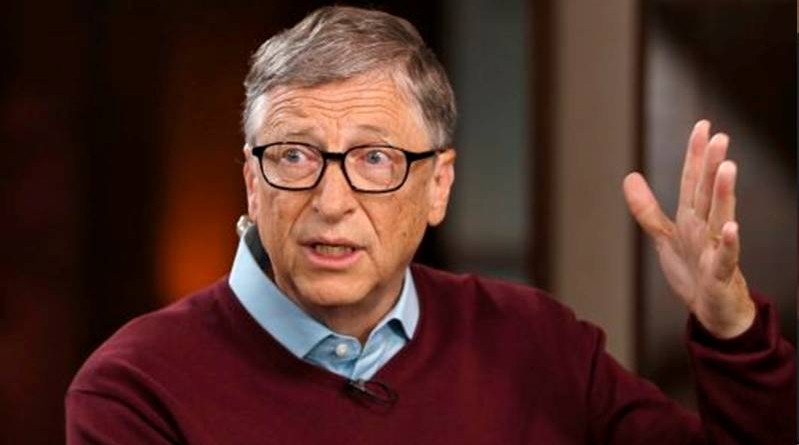Bill Gates says trade tensions are ‘scary’ and could put a ‘burden’ on global growth and jobs
Billionaire Bill Gates has called the current global trade tensions “scary” saying that they could impact economic growth and jobs.
In an interview with CNBC TV18, an affiliate of CNBC, that aired on Wednesday, Gates said that the global economy is “doing quite well right now” but could be affected by tariffs.
“Certainly these trade issues are scary in that if you get people turning inwards, raising up tariffs, the global economy is not going to do as well. There’s huge benefits to trade,” Gates said.
A number of countries have been dragged into trade issues which have, in large part, been initiated by U.S. President Donald Trump. Last week, China said it was ready to retaliate with tariffs on around $60 billion of U.S. goods, just days after the U.S. administration revealed that Trump had spoken with U.S. Trade Representative Robert Lighthizer and asked him to consider increasing the proposed levies on $200 billion of Chinese goods up to 25 percent, from 10 percent. The European Union, Canada and Mexico have also been dragged into various trade disputes with the U.S.
Further tariffs could have an implication for a number of industries, particularly those with complex supply chains, according to the Microsoft founder.
“The rhetoric that OK you know we’ll use trade tariffs and we’ll force somebody to do something, that can escalate, and so we could end up with a lot of tariffs and all the plans people have made about assuming their global supply chains will work and that they’re able to do exports and imports. That alone will be quite a burden on economic growth and therefore job creation,” Gates said.
His comments come after a number of major organizations also warned of the impact of a full-blown trade war on the world economy. The International Monetary Fund (IMF) said in July that the continued threats from the U.S. to its trading partners regarding tariffs could lower global growth by as much as 0.5 percent by 2020 or about $430 billion in lost gross domestic product (GDP).
The World Trade Organization (WTO) released a report in July showing an increase in so-called “trade-restrictive” measures between October 2017 and May 2018 between the Group of 20 (G-20) countries. WTO Director-General Roberto Azevedo called these a “real concern” in a statement at the time.
“This continued escalation poses a serious threat to growth and recovery in all countries, and we are beginning to see this reflected in some forward-looking indicators,” Azevedo said.





